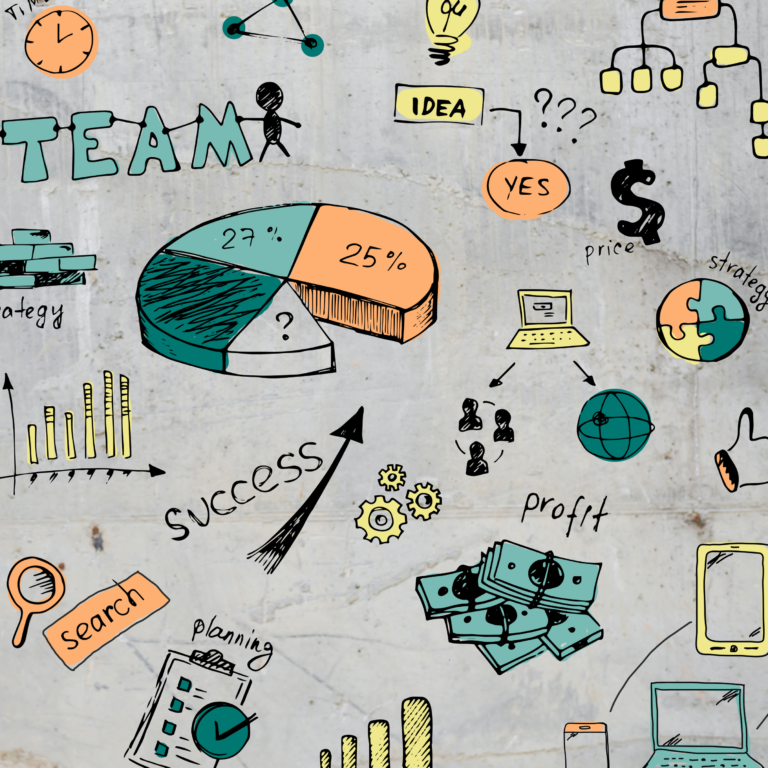Just like the world around us, marketing is constantly evolving. “Traditional” marketing is any form of marketing that doesn’t take place online – including print, broadcast, direct mail, outdoor advertising, etc. You rarely see a campaign that runs through strictly traditional media sources anymore, as digital outreach has become more widely available and is often a more affordable option. Undeniably, it can be harder for smaller businesses to break through the noise of these overcrowded marketing spaces, especially when you’re lacking a hefty budget.
For small to medium size businesses to make a splash with their marketing campaigns, they need to look outside the box. One key strategy is to use a marketing technique inspired by guerrilla warfare called guerrilla marketing. The term “guerrilla marketing” was first coined by Jay Conrad in 1984.
Guerrilla marketing strategies are surprising, creative, and quirky – they are also often inexpensive, innovative, and have the potential to go viral on social media. In a way, this marketing technique goes hand in hand with public relations, which seeks low-budget strategies to generate media attention and buzz for a client. Here are several examples of how large corporate businesses have used unconventional marketing techniques – like guerrilla marketing – with great success:
- Tesla (and basically everything that Elon Musk does)
Tesla’s marketing strategy can’t be traditionally categorized as guerrilla marketing, but it is certainly unconventional for a large corporation. Tesla is estimated to be worth over $1 trillion, yet they spend no time or money on traditional paid advertising campaigns. The company, and particularly CEO and Founder Elon Musk, are able to generate enormous media attention organically, with no PR or marketing team, puzzling marketers and PR practitioners alike. It’s fascinating to see how, with a single tweet from the eccentric billionaire, Tesla can be trending on all social media platforms.
Tesla’s marketing strategy (or lack thereof?) teaches us the importance of social media in building authenticity, community, and consistency. Forbes tells us how even Elon Musk’s behavior as CEO drives attention to the brand and builds authenticity. Forbes writes, “Tesla turned the automotive industry on its head, and Musk did the same for CEO behavior. In most cases, CEOs tend to be a careful bunch, but not Musk. Though his social media presence has been controversial at times, ultimately, it has served as a key way to promote Tesla.
CEOs who are active on social media, socially responsible, and charismatic can have a tremendously beneficial effect on their brands’ recognition.” A business doesn’t need a billionaire CEO or trillion dollar net worth to generate attention. Small businesses can learn to build authentic relationships with stakeholders on platforms like Twitter, Instagram, and Tik Tok, in order to manage reputation affordably and increase trust.
- McDonald’s celebrity meals
McDonald’s is not the first corporation to hop on the influencer bandwagon, but their use of this unconventional yet relevant strategy is working to their advantage, and can teach small businesses about the power of influencers. For this tactic, McDonald’s has been working with influencers and celebrities alike to make a nation-wide orderable meal that replicates the type of meals that each individual orders from McDonald’s. This is on-trend with several fast food companies collaborating with celebrities to serve custom meals. Dunkin Donuts worked with Charli D’Amelio to make her normal Dunkin’ coffee order a menu item called “The Charli”, and Chipotle partnered with Miley Cyrus to create her signature burrito. McDonald’s has partnered with highly popular musical artists such as Travis Scott, BTS, Sawettie, J Balvin, and Mariah Carey. These unique celebrity creations make customers feel connected when ordering their idol’s favorite meal, and has resulted in profit growth for the company.
- Michelin’s world-renowned restaurant guide
The Michelin Guide is a series of published guidebooks created by the French tire company that awards stars to fine dining establishments based on their level of excellence. Restaurants can be awarded between one and three stars, with one star representing “high quality cooking,” two meaning “Excellent cooking, worth a detour,” and three stars meaning “Exceptional cuisine, worth a special trip.” The Michelin guide has developed into a global standard of culinary excellence. Stratwell Strategic Solutions writes, “the growth in popularity of the guide has raised awareness of the Michelin brand around the globe. Essentially, their greatest accomplishment was their ability to find the sweet spot between what they offer and what the audience needs. Therefore, the guide has ventured into a genre of its own, offering more than just cars and tires information.”
The strategy of Michelin’s marketing campaign shows how thinking outside the box can develop brand awareness and provide practical information for a variety of audiences. Additionally, your organization’s marketing strategy doesn’t have to be directly related to your products. At first glance, Michelin tires and food have nothing to do with one another, yet they took a creative approach and became thought leaders for an industry that is indirectly their own.
Thoma Thoma’s marketing team is experienced with industry-leading marketing strategies and has experience working with small businesses across various diverse industries. Through Thoma’s unique Live Your Brand discipline, our clients have tripled in size, driven efficiency ratios down, and become highly preferred destinations for talent. If you’d enjoy similar results in your organization, let’s connect https://thomathoma.com/contact/.

